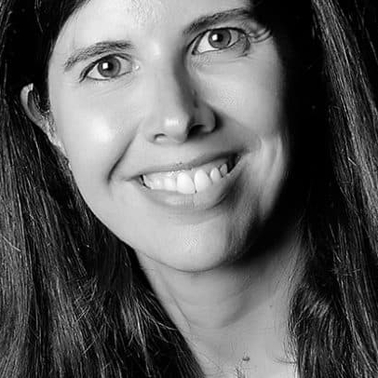- Home
- We Are Alumni
- Epic Awards
- Marta Fernández Herraiz
Marta Fernández Herraiz
Marta Fernández Herraiz

In 2014, Marta Fernández Herraiz decided to launch a networking operation specifically aimed at lesbian women and called it Lesworking. To date it has organized more than 20 events and has more than 1,300 members from the most varied professional sectors.
“Although being a lesbian ought to be irrelevant in the professional setting, the fact is that many lesbian women hide their orientation in the workplace”
Says Marta Fernández Herraiz, founder of Lesworking, the professional network specifically for lesbians. “Unlike heterosexual women, who tend to talk about their husbands or boyfriends, more than 70% of lesbian women who haven’t come out of the closet in their companies don’t talk about that because they feel that it’s part of their private life, that they have no reason to share it in the office,” she explains. Fernández Herraiz thinks that this answer is related to fears and insecurities like the ones she used to have. And she speaks from knowing the experience of what it is to hide an important part of your life in a place where you spend so much time. Some of these women create a barrier from their co-workers. Others “change the sex of their partner and refer to her as a him.” But all of these women agree on one thing: when they finally do take the step, they feel relieved. “Many of them feel that being visible has even made them better professionals, because they are more coherent and braver in what they do.” She found it hard to accept herself as a lesbian because she had no role models. After coming out of the closet she began to meet other women whom she found fascinating. “With the ‘excuse’ that we were all lesbians, I made contact with women whom I probably never would have met any other way, and who enriched me personally and professionally because they had life experiences and jobs that were very different from my own. Film directors, professional horsewomen, pilots, doctors, professors, activists… And since I came from the corporate world, I also seemed interesting to them.” She decided to get down to work so that those encounters would not be merely by chance “but something that was sought out and organized.” Now she points with pride to a network of more than 1,300 professionals in more than 20 countries that she has created.
““Once being connected among ourselves, we can do big things together because we come from all walks of life. I would have liked to have something like this when I didn’t have points of reference and was full of doubts and fears.”
It’s not that there was no offer of events for lesbians in Spain, but this offer was centered around “entertainment, cultural and sporting events or political associations” rather than business activities. In other countries there do exist organizations that promote networking among lesbian women. In the United States there is Lesbians Who Tech, with more than 40,000 members: they organize conferences in which they discuss technology and diversity. “They have top speakers like Sheryl Sandberg, the COO of Facebook, and have the support of large multinationals like Google, Facebook and Amazon,” says this entrepreneur.
Lesworking isn’t confined to the technological field: it covers many sectors and sometimes even organizes theme events, such as a recent encounter of lawyers. In the medium term its aim is that all these women realize their potential in workplaces that are more inclusive.
To date they have organized more than 20 events, with an average attendance of 100 women. One of the next ones will be in Madrid in collaboration with the IE Out Club, a community of LGTB students from IE whose president, Michelle Raymond, is also a member of Lesworking.
The events have hosted women like Sonia Sebastián, Director of the feature film De chica en chica; Paloma del Río, a sports journalist; Irene Milleiro, Director for Europe of Change.org; Isabel Durán, Director of television programs such as Casados a primera vista and El líder de la manada; Violeta Assiego, a lawyer and expert in human rights; Cristina Aranda, Founder of MujeresTech, and many others.
Fernández is aware of the difficulty in making networking occur naturally. That’s why, in addition to the talks, her group organizes parallel interactive activities.
“We try to design dynamics that help women talk among themselves and discover they have a great deal to share and build together once they overcome that initial shyness.”
Among their future objectives: to create their own tool (now they use LinkedIn groups). They’re also trying out a pilot in the Slack messaging tool, and have launched the Yolesbiana.com channel through the Vivlium learning platform.
When she received the news that she had been nominated for the EPIC awards, she had just returned from Brussels after taking part in a Lesbian Visibility Day event at the European Parliament. When she saw the email from Julia Sánchez, Head of Global Alumni Relations, giving her the news, she was very happy and immediately told her girlfriend, Isa, with whom she went to celebrate at a Mexican restaurant. “Being part of a business school that has always supported diversity, including LGBT diversity, makes me feel doubly proud. Being nominated for the EPIC awards in the Women Inspiring Women category is a great honor for me –as a former student, as a woman, as a social entrepreneur and as a visible lesbian. Being nominated for this award is important for my project because it will help give more visibility to what we do in settings where this subject tends to be a taboo.”
These events have spawned projects, groups of friends, professional opportunities and even couples. “We feel very proud of that because we think we’re contributing to the development of a communal feeling among ourselves, and to empowering women, as both women and lesbians.”